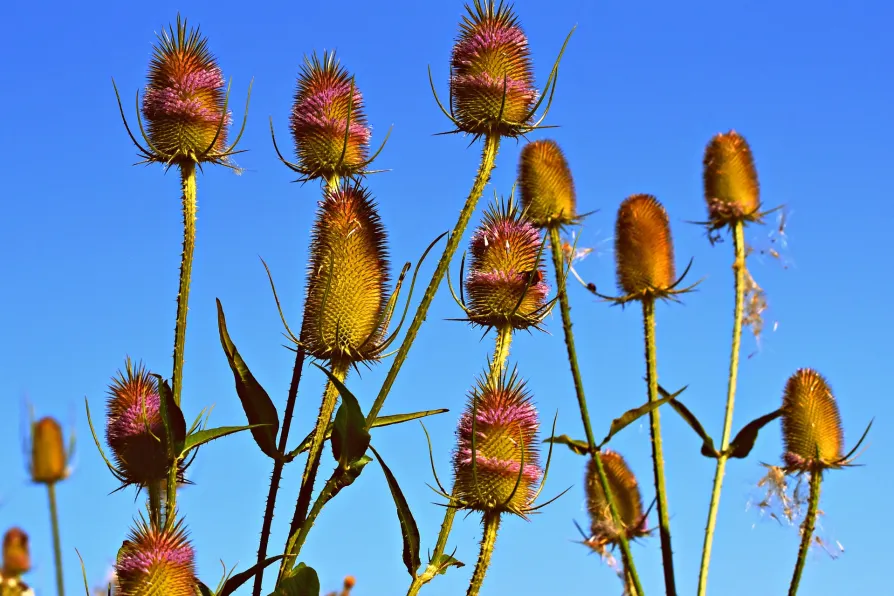Once the bustling heart of Christian pilgrimage, Bethlehem now faces shuttered hotels, empty streets and a shrinking Christian community, while Israel’s assault on Gaza and the tightening grip of occupation destroy hopes of peace at the birthplace of Christ, writes Father GEOFF BOTTOMS


I SUSPECT that the reader who told me she has a garden “literally about the size of a luggage trunk,” and asked what she could grow in it to attract wildlife, thought she was setting me a challenge. But in fact the answer is very easy: plant a teasel.
I’m writing this on a day of heavy snow, looking out of the window at my own teasel (botanical name Dipsacus fullonum), at which three goldfinches — surely the most exotic-looking of Britain’s regular garden birds — are busily feeding. They’re after the seeds, which their long, fine beaks allow them to prise out of the plant’s dead, dried flower heads.
Teasels must produce an awful lot of seeds, because the birds visit them repeatedly right through autumn and winter. If you know that goldfinches exist in your area, and you’d like to see them in your garden, then I don’t think there is any better plant you can grow. Other seed-eating birds also use teasel, though goldfinches will tend to picket them out.

MAT COWARD rises over such semantics to offer step by step, fool-proof cultivating tips













